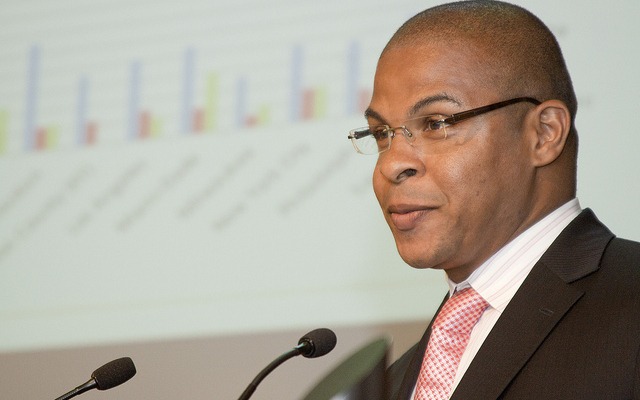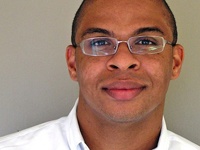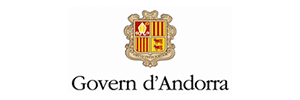research
Prof. Roland Fryer (Harvard) selected to receive 2012 Calvó-Armengol International Prize in Economics

The Barcelona School of Economics, in cooperation with the Government of Andorra, and the Credit Andorrà Foundation, is pleased to announce that the second Calvó-Armengol International Prize in Economics, in the memory of Prof. Toni Calvó-Armengol, has been awarded to Prof. Roland Fryer (Harvard University).
Influential beyond his years
Roland Fryer, Jr. is the Robert M. Beren Professor of Economics at Harvard University and a research associate at the National Bureau of Economic Research. He received his B.A., with departmental and university honors from the University of Texas at Arlington in 1998, and his Ph.D. in economics from the Pennsylvania State University in 2002. He then was a fellow in the Harvard Society of Fellows. In 2008, at 30 years old, Roland became the youngest African-American to receive tenure from Harvard. He has been the recipient of a number of honors, including a Sloan Fellowship and a Presidential Early Career Award for Scientists and Engineers. He was listed as one of Time Magazine's 100 most influential people in 2009.
New understanding of race and social interactions
Fryer has been an energetic and entrepreneurial researcher analyzing race and inequality using a diverse set of theoretical, empirical, and experimental tools to shed new light on the role of race in social interactions. In a series of papers co-written with Steven Levitt, Fryer used a new and powerful data set about achievement test scores among students in their first years in school, and found that the black-white test gap found by earlier researchers is not present among kindergarten students once one controls for a series of observable socio-economic factors, but that a gap then emerges over the first few years in school, apparently due to differences in school quality that correlate with race. His empirical research has expanded on a number of other topics related to race and behaviors, ranging from the causes and consequences of distinctively black names, some of the effects of the crack cocaine epidemic. In a project with Lisa Kahn, Steven Levitt, and Jorg Spenkuch, Fryer shows that mixed-race teenagers are much more likely to engage in various high-risk behaviors than their black and white peers. His research also provides theoretical foundations for measuring and understanding racial inequality. For example, in work with Federico Echenique, Fryer provided new methods for measuring how segregated neighborhoods are. He also developed, with Matthew Jackson, a model of how an individual who stores memories in categories, can then end up with biased beliefs about things that she might have limited experience with, and how this can lead to systematic prejudice towards minorities.
Fryer has also worked tirelessly on education policy, including serving as the Chief Equality Officer at the New York City Department of Education in 2007 and 2008. During that time period, he developed and tested a variety of incentive and pay-for-performance schemes for both teachers and students. Those policies have led to new understanding of the size and duration of the impact of various incentives and what motivates students and teachers. Fryer continues to implement and test novel methods for improving performance of secondary school students as director of the Education Innovation Laboratory, which coordinates a variety of innovative research and policy initiatives. In particular, Fryer and his collaborators have further designed and studied the effect of cash incentives on the performance of students in New York, Washington D.C., and Chicago public schools.
Prize background
The Calvó-Armengol International Prize memorializes Prof. Antoni Calvó-Armengol (ICREA-UAB and GSE) who passed away in the Fall of 2007 at 37 years of age. It is awarded biannually to an economist, or other social scientist, who is not older than 40 years old, for his or her contributions to the understanding of social structure and its implications for economic interactions. This is the second awarding of the prize, with the inaugural prize going to Prof. Esther Duflo (MIT) in 2009.
The Prize, which includes a cash award of €30,000, recognizes exceptional achievement in research, and the awardee will be the scientific director of a workshop for young investigators from around the world. The second ceremony and workshop will take place in June 2012. Because Toni Calvó-Armengol was a professor at the Universitat Autònoma de Barcelona and the BSE, the prize-winner will also deliver an academic lecture in Barcelona. The prize selection committee consisted of Profs. Salvador Barberà (UAB and GSE), Matthew O. Jackson (Chair) (Stanford University), and Joel Sobel (UC San Diego).
Prof. Roland Fryer (Harvard), 2012 Calvó-Armengol International Prize
Time Magazine 100 Most Influential People of 2009
The New York Times Magazine feature from March 2005



